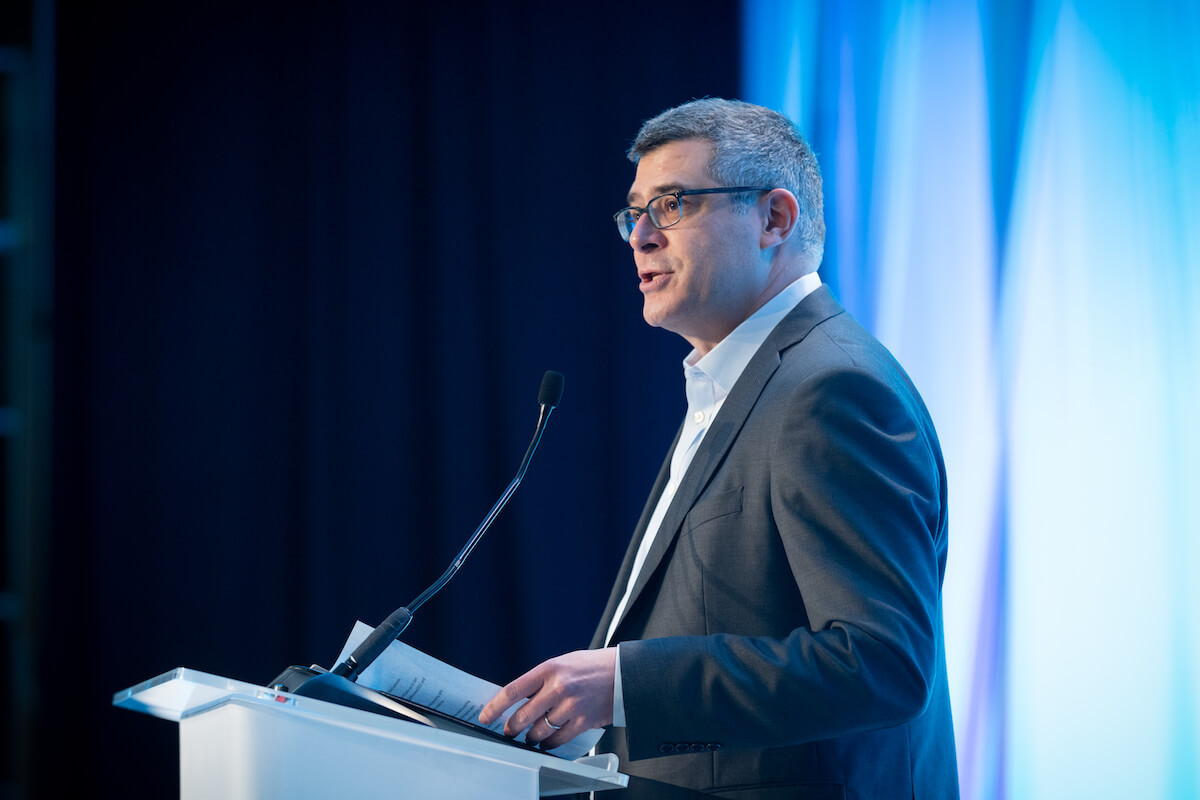Greetings, Agents of Impact!
Dealflow: Follow the Money
Operator Collective taps operator wisdom and capital for $45 million fund. Founders get the glory, but it’s the operators behind them that build the companies. Mallun Yen, co-founder of SaaStr, wants to harness the skills and experience of such coders and lawyers and engineers. Yen’s Operator Collective raised $45 million, including from more than 100 operators from companies including Stripe, Gusto and Slack. Nine out of 10 of the investors are women and 40% are people of color. The thesis: limited partners with diverse backgrounds and operational experience can help the fund invest in and support entrepreneurs overlooked and undervalued by traditional venture capital funds. Among the fund’s early investments is Guild Education, a Denver B Corp that reskills frontline workers (see, “Reskilling frontline workers, Guild Education becomes a B Corp unicorn“). “We saw the value in what Mallun is building,” said Cynthia Muller of the W.K. Kellogg Foundation, which backed the fund along with Kapor Capital, Perkins Fund, Gingerbread Capital and others. Dig in.
Renewable energy investment bank Greentech Capital to be acquired by Nomura Holdings. Greentech, founded in 2009, has helped Macquarie Group, Goldman Sachs and others buy and sell wind and solar farms and other green infrastructure projects. “We believed that there would be a coming disruption across our energy, transportation, food, water, and waste industries as the world transitions to lower-carbon, more efficient, and more intelligent infrastructure systems,” said Greentech’s Jeff McDermott. Nomura, Japan’s largest asset management firm, will pay an estimated ¥10 billion ($92 million), to bolster its sustainable investing capacity (see, “Japanese investors push to take impact investing mainstream”). McDermott, former co-head of investment banking at UBS Group, scored early backing from Jeff Skoll’s Capricorn Investment Group and grew Greentech to more than 70 people in New York, San Francisco and Zurich. Environmental groups have pressed Nomura over its fossil-fuel financing. “It became very clear that Asia is going to be the largest and fastest growing region that requires our expertise,” McDermott said. Share this.
Consonance backs AFEX to help capitalize smallholder farmers. AFEX wants to make agriculture in Africa more inclusive, scalable and efficient. The Abuja-based company’s commodities exchange for products like sorghum, maize and cocoa sources from more than 100,000 smallholder farmers. Now, AFEX is building microfinance partnerships for farmers, a data platform for farmer profiles and crop traceability, and securitized investment products to enable larger investors to back Africa’s agricultural growth. AFEX raised an undisclosed amount of equity capital from Lagos-based Consonance Investment Managers. “We are trying to solve this huge issue around livelihoods,” AFEX’s Ayodeji Balogun tells ImpactAlpha. “Agriculture is the largest employer on the continent, but the main players in the sector—the smallholder farmers—are the poorest of the lot.” Read on.
SaverLife secures $1.5 million to boost employee saving. Fintech solutions for low-wage workers won’t fix workforce problems like wage stagnation or variable income. But they can help, argues SaverLife’s Leigh Phillips. The 10-year-old San Francisco-based nonprofit runs a platform that uses prizes and incentives to encourage workers to save more. “We know that saving regularly and having an emergency fund is the way to weather financial instability,” Phillips tells ImpactAlpha. The organization has reached 250,000 individuals through its direct to consumer platform. A $1.5 million grant from Prudential will help SaverLife grow the revenue-earning, white label side of its business. More.
Ada Ventures raises $34 million to back Europe’s diverse tech founders. The British Business Bankanchored the fund, which is also backed by Blue Sky Capital, Rasmala, TransferWise’s Taavet Hinrikus and Backstage Capital’s Arlan Hamilton.
Novel Growth Partners closes $12 million fund for Midwest startups. The Kansas City-based firm provides business-to-business startups with revenue-based “bridge” financing.
Earnest Capital makes revenue-based investment in FirstBase. The investment in the international business formation startup is Earnest’s twelfth deal since launching earlier this year.
Franklin Templeton leads investment in Proof of Impact. The blockchain-based marketplace allows individuals to donate or invest directly into measurable impact outcomes.
Signals: Ahead of the Curve
Safeguarding the public good from privatization. Education. Water. Prisons. Private capital is flowing into areas that have historically been public responsibilities subject to democratic processes. Cities are selling assets such as highways and water systems to private entities that promise to run them more efficiently. Impact investors targeting pay-for-success and social impact bonds to reduce recidivism or boost educational outcomes may spur such privatization. In a webinar, Transform Finance’s Andrea Armani suggested impact investors should set terms for public-private deals and create structures to help public agencies maintain control. Building worker and community benefit standards and “infrastructure justice” into the front end of deals can “set investors apart,” said Donald Cohen of In the Public Interest, a research and policy center. In the Public Interest’s guide suggests 10 questions that civic leaders and investors should ask. No. 10: Have you read the contract?
- Mixed results. Privatization can result in higher fees and prices, lower wages, reduced transparency and perverse incentives. Public agencies have found themselves handcuffed by lingering “non-compete” and “compensation” clauses. For example: After Chicago turned over its parking meters to a private fund for 75 years, parking rates quadrupled. The private fund will recoup its investment in a decade; the city is on the hook for tens of millions of dollars a year because of a contract clause that requires the city to reimburse investors for parking spaces that are unavailable, for example, because of a street fair.
- Pay attention.
Agents of Impact: Follow the Talent
Edwin Macharia was elected incoming global managing partner at Dalberg Advisors… Caprock’s Matthew Wetherly-White lifts the hood on how he invests his own money… The Kauffman Foundation seeks a program officer of knowledge creation and research in Kansas City… Aspen Network of Development Entrepreneurs is hiring a Brazil chapter manager in São Paulo… Good Finance is looking for a digital marketing and communications officer in London.
Thank you for reading.
– Dec. 12, 2019











